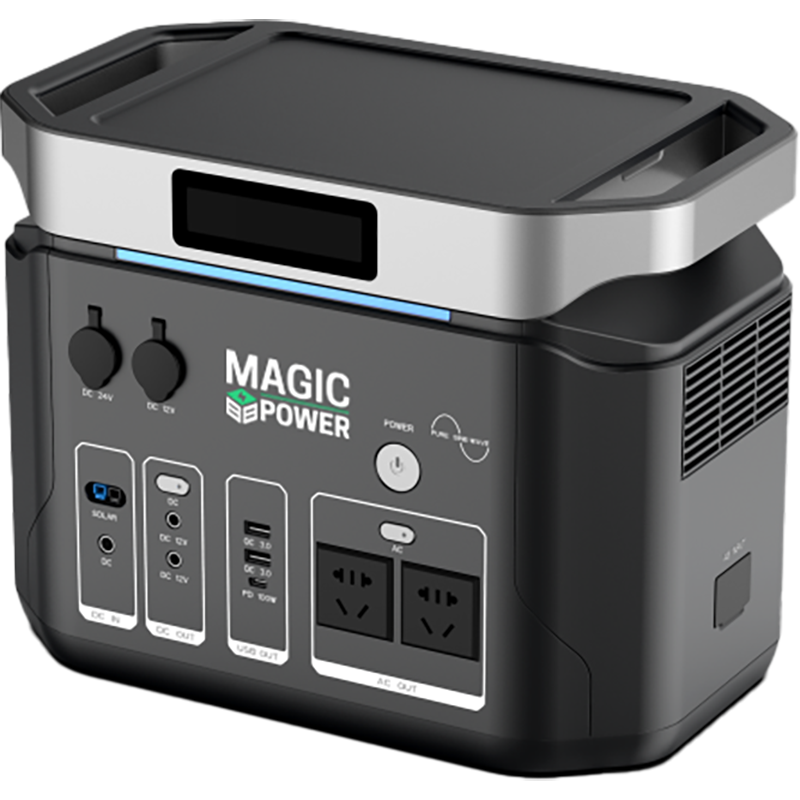Comprehensive guide to select the best backup power system
Electricity is a major power of our daily life in the modern world. Power outages disrupt our routines a lot. In such a situation, it is essential that you do not have to face any power shortage and keep up with the same day-to-day possible functions by having backup reliable electricity source. How to choose the right backup power system for you.

1. Things to remember when choosing backup power systems
Selecting the suitable backup power system by Magic Power can feel like a big job, not to mention there are so many alternatives on the market. Nevertheless, it is essential that you keep these five important factors in mind to choose wisely.
A) load size
Your load size is how much electricity will be required to run your home or business during an outage. Determining the wattage of all your devices is what helps identify the correct size generator you need.
B) fuel type
Choosing the right type of fuel is important to consider also when devising a backup portable power system. Some common alternatives are natural gas, diesel and propane as well gasoline. There are of course pros and cons for each of these fuels, so be sure to pick the right one that suits your needs.
C) maintenance requirements
As with any other machine, backup power systems need to be periodically serviced so as to function at their best. When deciding on a portable power supply, keep maintenance in mind and choose systems that are simple to maintain with easily obtainable parts and service technicians.
D) noise level
Backup power systems can also be extremely loud when in operation. Therefore, the noise level in a system is an absolute need when considering buying it.
E) cost
Cost is the final important consideration when choosing a backup solar power station system. Finally, you ought to have the expenses of your system and its installation regarded as well so that they can fall into line with the budget which determine how much maximum it will cost.
2. How to Pick The Right Backup Power Solution
To help guide you in choosing the most appropriate backup power solution, here are step-by-step instructions:
Step 1: what power do you need?
Think through the power demands to keep you home/business running in an outage as well. This assessment will help you choose a backup power system that can effectively feed those needs.
Step 2: you must take is to compare the different back up systems.
Check diverse back up power solutions, understand their pros and cons applications and get one according to your requirements.
Step 3. Assessing location and space constraints
Some backup power systems may need extra space for installation and the inclusion of certain features like sound insulation. Think about the space you have to work with and decide on a home for your mid century rocking chair make sure your new rocking chair fits into its chosen spot.
Step 4: warranty and maintenance
Make sure to also check for the warranty, support and maintenance requirements before you buy choose some type of a fire starter and make sure it is with you.
Step 5: set your budget
Decide, once and for all to finalize your budget remember also to consider the total value of your backup power solution and installation, relative to what you can afford towards it.
3. Selecting the correct unit for you
Different factors should be taken into account to select the suitable backup power system. In order to select the best option, you need to consider this:
A) your power needs:
B) Select The Fuel Type That You Are Going to Use
C) delve into research on various systems
D) assess maintenance requirements and costs
E) provide location and space needs
F) determine your budget
4. Useful Advice/recommendations
Tips on choosing a backup power system
A. Always calculate your power requirement properly
B. Go for low maintenance systems
C. stake money into sustainable systems.,
D. you must take noise levels into account when choosing your model
E. review installation needs and costs
F. Making an informed decision
Assessing these options all requires plenty of careful thought as described above. Be sure to compare backup power systems based on these:
A) power requirements
B) fuel type
C) Needs for Maintenance and Services
D) compliance regulation
E) noise levels
F) area required and installation cost
As you can see, choosing the right backup power system requires taking into account critical factors including size of load, type of fuel used for generator engine operation and maintenance requirements necessary to keep a generator running efficiently over time. Use this in-depth guide to help you take an informed decision when picking the backup power system which perfectly serves your purpose.

 EN
EN
 AR
AR
 CS
CS
 DA
DA
 NL
NL
 FI
FI
 FR
FR
 DE
DE
 EL
EL
 IT
IT
 NO
NO
 PL
PL
 ES
ES
 SV
SV
 TL
TL
 ID
ID
 UK
UK
 VI
VI
 TH
TH
 TR
TR
 AF
AF
 MS
MS
 MY
MY
